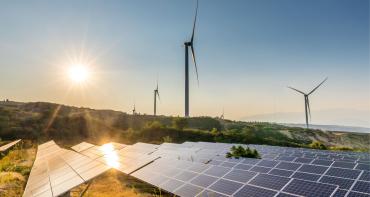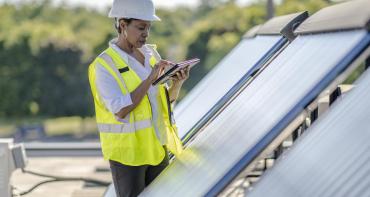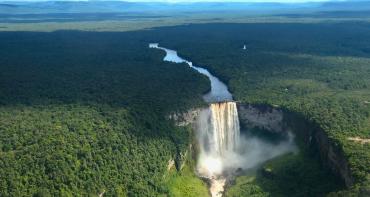This year the Commonwealth’s Climate Finance Access Hub began deploying experts to ministries of finance and environment to help developing countries access the billions of dollars pledged for effective climate action.

This year the Commonwealth’s Climate Finance Access Hub began deploying experts to ministries of finance and environment to help developing countries access the billions of dollars pledged for effective climate action. The initiative is an integral part of the Commonwealth’s new Regenerative Development to Reverse Climate Change initiative, and governments have welcomed its vital support.
Describing Mauritius as one of the countries “most exposed to the adverse effects of climate change”, the country’s Minister of Finance, Pravind Jugnauth, said: “As both the host of the Hub and a Small Island Developing Country benefiting from it, Mauritius warmly welcomes the deployment of National Advisers to beneficiary countries.
“These National Advisers will provide the required capacity-building for countries to access climate funds. The success of the Hub will be crucial to our efforts in combating the effects of global warming.”
Patrick Karani, a Commonwealth Climate Finance Access Hub expert who is assigned to the Ministry of Finance in Mauritius, offers insight into his new role.
Tell me a bit about yourself and what you did before you joined the Hub.
I consider myself a development practitioner with working experience on finance, environment and climate change projects. I started my professional career with the World Bank in Washington DC at a time when climate change was getting attention in the organisation, and managers were trying to figure out how to mainstream the issue into its projects, business, operations and decision-making. It was not easy, since the bulk of the bank's business was in energy - mainly powered by coal, large hydro power projects, fossil fuels, infrastructure etc.
Under the mentorship of my manager, Eivind Tandberg, I pioneered early funded climate change projects such as the India-Demand Side Management. This enabled farmers to pool together and connect to a grid to pump water to irrigate farms, replacing diesel generators that were less efficient, costly and polluting. Later, I joined the International Finance Corporation for a year to gain private sector experience.
Prior to joining the Climate Finance Access Hub, I worked as a climate finance expert in the Gambia on a World Bank Climate Investment Fund. In conjunction with the African Development Bank, we developed an Investment Plan for the Gambia Strategic Programme on Climate Resilience. I also worked on the EU Global Climate Change Alliance to develop the Gambia Climate Change Policy, and on the Uganda Climate Change Policy. Later, I was part of the Intergovernmental Authority on Development (IGAD) project, that addressed the impact of pollution on economic cooperation and regional integration among IGAD member states - Djibouti, Ethiopia, Kenya, Uganda and Sudan.
What does being an expert at the Hub involve, how will you support Mauritius?
The challenge for experts on the Hub is to combine theory and practice to share knowledge, impart skills and build the capacity required to prepare bankable projects and access to climate finance.
The role involves logistical coordination among diverse stakeholders with different interests, and undertaking consultations to build and reach consensus. I help to catalyse interests and raise awareness of the availability, importance and the role of climate finance in addressing climate change problems and achieving sustainable development. Above all, being an expert at the Hub involves preparing projects that can attract investment, and providing strategic guidance, suggestions and advice on how to access climate finance.
My support to Mauritius will be multifaceted. I will help to bridge the knowledge gap for effective policy formulation, planning and accessing funds required to address climate change problems. I will also assist with preparing the effective and bankable projects required for accessing financial resources for climate change related and other challenges. I will work with local stakeholders to build capacity across ministries, departments and institutions, and to impart the knowledge and skills required for empowerment.
How can the Hub change the climate change paradigm for climate-vulnerable countries?
The Hub is emerging as a knowledge platform that will build capacity for climate-vulnerable countries. One of the serious challenges for these countries is lack of capacity to resist and or cope with the effects of climate change. The Hub will help to address this problem with a paradigm shift towards building capacity and empowering vulnerable countries to be inward looking and self-determined to handle climate change in the long run. It will help to improve awareness of developing policies, planning and financing climate change, and consequently to mobilise more resources from international public and private sources.
The Hub will also help to improve transparency in climate finance through proper budget codes, tagging and tracking climate change funding.



